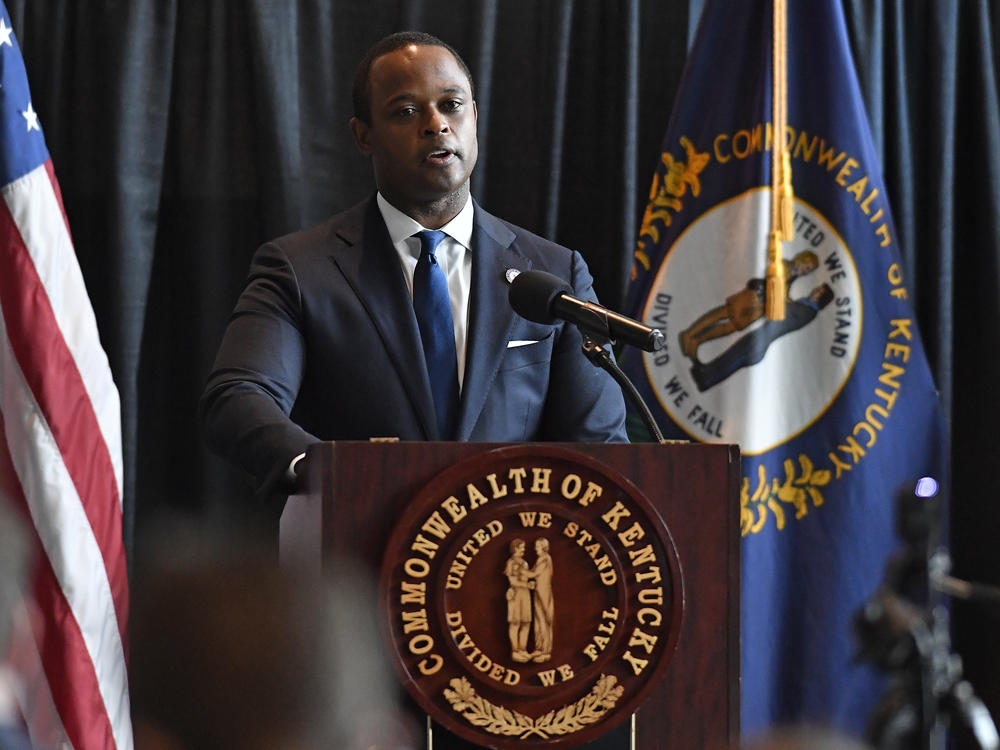Section Branding
Header Content
Release Of Breonna Taylor Grand Jury Recording Is Delayed Until Friday
Primary Content
Updated at 3:30 p.m. ET
A judge has granted Kentucky Attorney General Daniel Cameron's request for more time to release a grand jury recording in the Breonna Taylor case.
The new deadline to release the recording is this Friday at noon ET, Jefferson Circuit Judge Ann Bailey Smith said in a court order on Wednesday. The order said the defense counsel had no objection to the request.
A motion filed by Cameron's office asked the court for more time in order to redact witnesses' personal information. That task is complicated by the recording's size: It's more than 20 hours long, the attorney general's office says.
The two extra days granted by the court is shorter than the week Cameron's office had been seeking, NPR member station WFPL notes.
The recording would provide a window into more than two days of grand jury proceedings in a case that has helped fuel national protests over racial injustice and police use of deadly force against Black people and other minorities.
The request for a delay was just ahead of a deadline set by Smith, who earlier this week took the rare step of ordering the release.
The attorney general's office says it plans to use the time "to redact personally identifiable information of witnesses, including addresses and phone numbers," said Elizabeth Kuhn, a spokesperson for Cameron, in a statement sent to NPR.
The judge ordered attorneys to release the recording amid intense public speculation over the decision to indict only Brett Hankison, a former police officer whose bullets are believed to have missed Taylor on the night she died during a botched drug raid in Louisville. Speculation has increased since a grand juror formally requested the ability to speak publicly about the case and how it was handled.
Cameron agreed to obey the release order earlier this week, but he added that he has reservations about doing so.
"The Grand Jury is meant to be a secretive body," Cameron said. "It's apparent that the public interest in this case isn't going to allow that to happen."
NPR's Merrit Kennedy contributed to this report.
Copyright 2020 NPR. To see more, visit https://www.npr.org.

